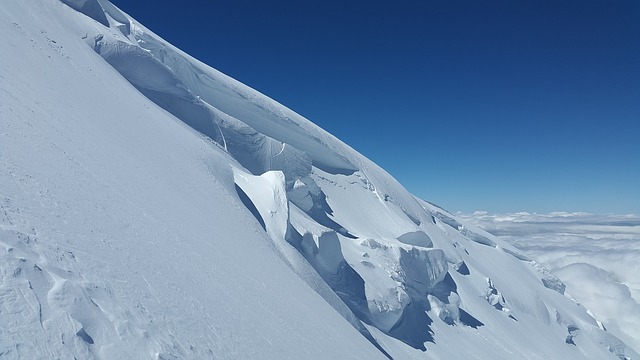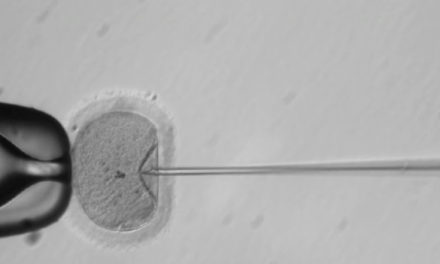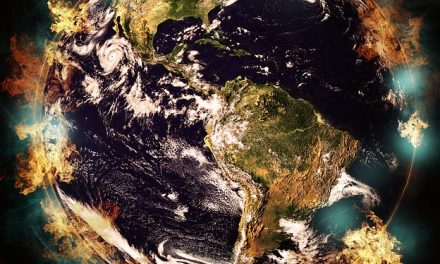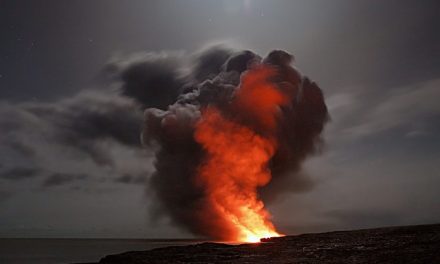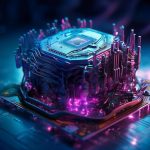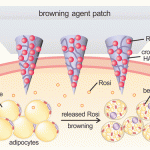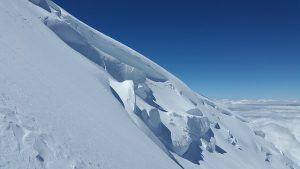 Although simple life forms like viruses and bacteria existed on Earth back at least two billion years, scientists are still not sure how life made the critical leap from microbes to the complex multicellular plants and animals that dominate the planet today. Scientists at the Australian National University analyzed chemical traces of life in sedimentary rocks that are up to a billion years old, to discover that a dramatic ice age called Sturtian glaciation, occurred approximately 700 million years ago. During this time also referred to as Snowball Earth, huge glaciers pulverized entire mountain ranges and caused rapid erosion of landmasses. When the glaciers finally melted 50 million years later, the rich nutrients of the mountain ‘dust’ were dumped into the newly formed seas and oceans where it allowed blue algae to thrive. This set in motion a surge of complex life, and setting an evolutionary process in motion that eventually lead to animals and humans.
Although simple life forms like viruses and bacteria existed on Earth back at least two billion years, scientists are still not sure how life made the critical leap from microbes to the complex multicellular plants and animals that dominate the planet today. Scientists at the Australian National University analyzed chemical traces of life in sedimentary rocks that are up to a billion years old, to discover that a dramatic ice age called Sturtian glaciation, occurred approximately 700 million years ago. During this time also referred to as Snowball Earth, huge glaciers pulverized entire mountain ranges and caused rapid erosion of landmasses. When the glaciers finally melted 50 million years later, the rich nutrients of the mountain ‘dust’ were dumped into the newly formed seas and oceans where it allowed blue algae to thrive. This set in motion a surge of complex life, and setting an evolutionary process in motion that eventually lead to animals and humans.
Writing in Nature, lead researcher Associate Professor Jochen Brocks, from the ANU Research School of Earth Sciences said, the moderation of global temperatures to more hospitable levels and the extremely high levels of nutrients dropping into the ocean from the erosion of landmasses, created the perfect conditions for algae to bloom and spread. This was the catalyst for the oceans to transition from being dominated by bacteria to a world inhabited by more complex life, he explained.
Co-lead researcher Dr Amber Jarrett of ANU, who studied the ancient sedimentary rocks to find the dramatic changes of life after the melting of Snowball Earth said:
“We immediately knew that we had made a ground-breaking discovery that Snowball Earth was directly involved in the evolution of large and complex life.”
Video Transcript:
0:00it’s one of the greatest mystery of
0:01science why large and complex animals
0:03appeared on earth 700 million years ago
0:06there was a dramatic event is so-called
0:07snowball earth event this was frozen
0:10over 450 million years and even at the
0:12equator the ocean was frozen 2
0:14kilometers deep huge glaciers glandt
0:17entire mountain sites to powder
0:18releasing nutrients and when the
0:20snowball melted these nutrients were
0:22moved with the melt water into the ocean
0:24creating an overkill of nutrients that
0:26changed ecosystems forever small
0:29microscopic bacteria reel replaced by
0:32much larger eukaryotic algae in these
0:34organisms are still microscopic but
0:36there are thousand times larger than a
0:38phototropic bacteria and these organisms
0:41revolutionize the base of the food web
0:43and without it we would not be here
0:45today to solve this mystery
0:47we took ancient cemetery works we
0:48crushed them to powder and we extracted
0:50molecules from one from ancient
0:52microorganisms as an organic chemist
0:54part of my role was looking at these
0:57rocks from Central Australia and just
0:59removing the contaminants and looking at
1:01the real ancient molecules and finding
1:04out what that tells us about ancient
1:07life these large creatures created the
1:09burst of energy that is needed for
1:11complex ecosystems out of which then
1:13animals can evolve it was a revolution
1:15of ecosystems it was the rise of algae

